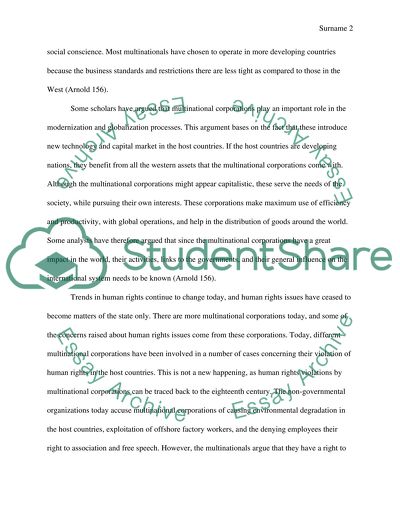Cite this document
(“Social responsibilities of multinational corporations Essay - 1”, n.d.)
Social responsibilities of multinational corporations Essay - 1. Retrieved from https://studentshare.org/philosophy/1467458-social-responsibilities-of-multinational
Social responsibilities of multinational corporations Essay - 1. Retrieved from https://studentshare.org/philosophy/1467458-social-responsibilities-of-multinational
(Social Responsibilities of Multinational Corporations Essay - 1)
Social Responsibilities of Multinational Corporations Essay - 1. https://studentshare.org/philosophy/1467458-social-responsibilities-of-multinational.
Social Responsibilities of Multinational Corporations Essay - 1. https://studentshare.org/philosophy/1467458-social-responsibilities-of-multinational.
“Social Responsibilities of Multinational Corporations Essay - 1”, n.d. https://studentshare.org/philosophy/1467458-social-responsibilities-of-multinational.


